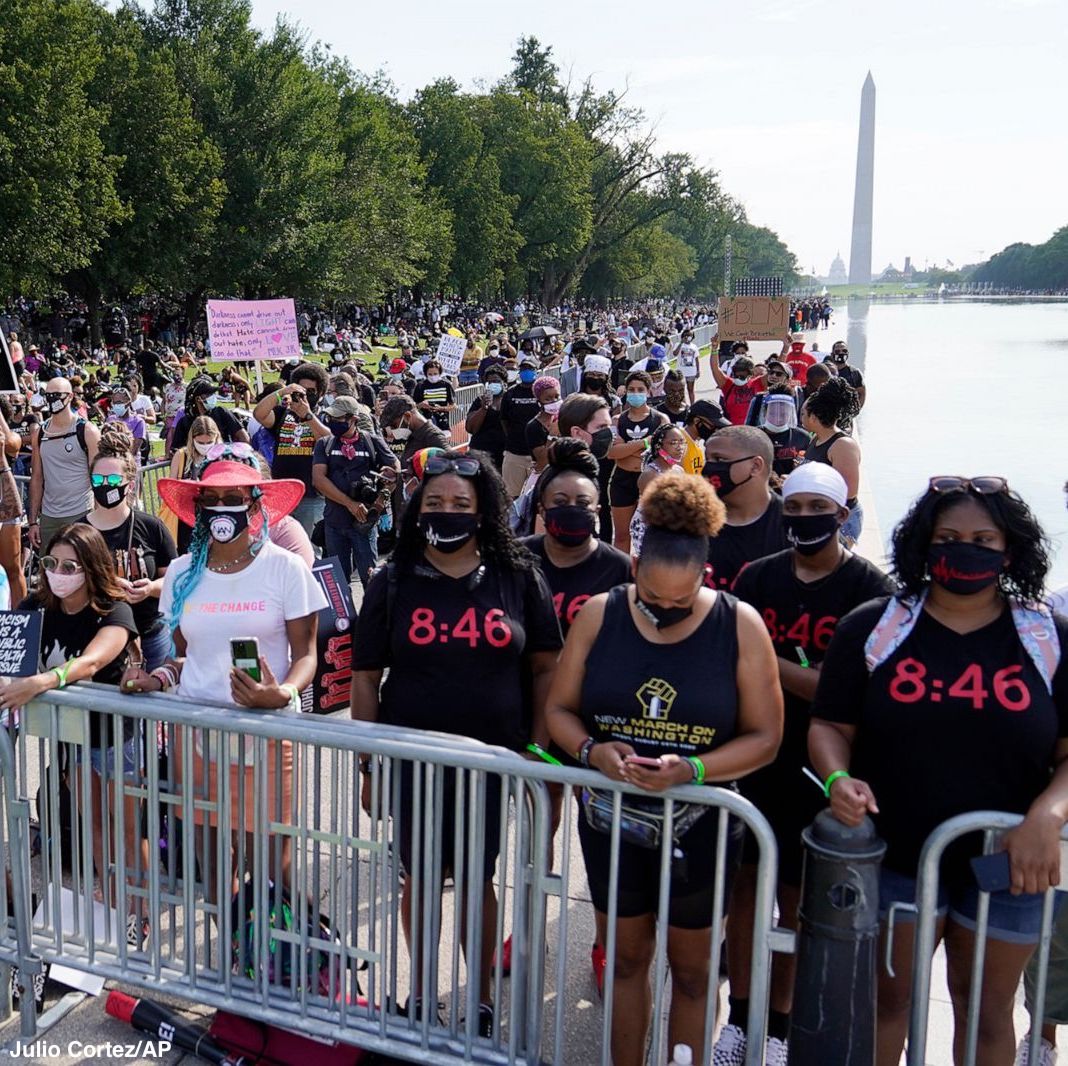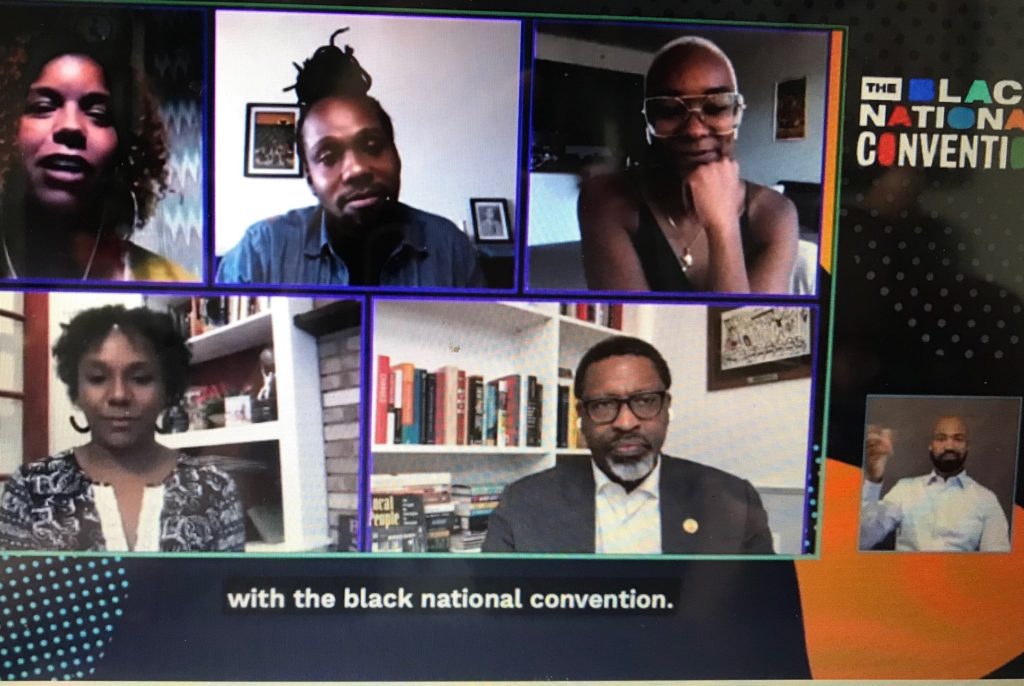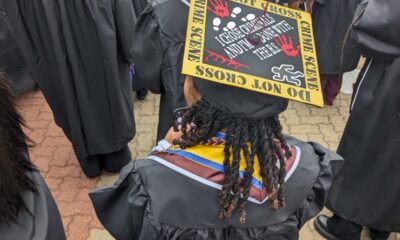Featured
How The Past Is Being Summoned To Help Shape Black America’s Future

African Americans reached into the cultural archives Friday and revived two historical touchstones, the 1963 March on Washington and the Black National Convention of 1972, creating an empowered demonstration of an inflection point in American history triggered by a prolonged campaign of protests against systemic racism starting in late May with the murder of George Floyd by a former Minneapolis police officer.
“We’ve come, like Dr. King came 57 years ago, to say we’re tired of broken promises,” Rev. Al Sharpton said at the march on Friday. “There’s a sense of urgency now. We need national legislation to deal with this.”
Sharpton called for the march from the pulpit on the day he delivered Floyd’s eulogy. He dubbed the protest, “Get Your Knee Off Our Necks”, a reference to the way Floyd died after 8 minutes and 46 seconds of the officer kneeling on his neck. Tens of thousands gathered on the National Mall on anniversary of the 1963 March on Washington to demand police reform.
“This moment is a reminder that we must always honor the sacrifice of the leaders who made that march happen,” said Democratic nominee Kamala Harris in a taped greeting. “I have to believe that if they were with us today they would share in our anger and frustration as we continue to see Black men and women slain in our streets and left behind by an eeconomy and justice system that have too often denied Black folks our dignity and rights.”
Wearing masks but standing shoulder-to-shoulder in some areas, speakers and demonstrators crowded along the National Mall despite the summer heat. Their commitment to attending the event seemed motivated, in part, by the recent shooting of 29-year-old Jacob Blake who was shot in the back seven times by a Kenosha, Wisconsin police officer while his children sat in a nearby car. Protests turned violent after a white 17-year-old with an affinity for militias allegedly shot and killed two protesters.
“There is a knee on the neck of democracy, and our nation can only live so long without the oxygen of freedom” said Martin Luther King III, whose father energized protesters almost six decades ago with his “I Have A Dream Speech.”
Inspired By 1972
The National Black Convention kicked off its 2020 event with a forceful reimagining of Black life delivered by Dr. Angela Davis.
“We do not get rid of the old and assume that the new must be constructed on the same foundation as the old,” Davis said. “We create new foundations, new footprints, new societies. Our focus today cannot be so narrowly directed toward what we oppose, but rather it should be directed at what we want. This is a moment ripe with possibility. So let the convening of the National Black Convention be a launching pad for a radical left agenda, a Black left agenda that encourage us all to fight for the future and the world we deserve.
In 1972 Black thought leaders like Dr. Coretta Scott King, Shirley Chisholm, and Betty Shabazz and Rev. Jesse Jackson gathered in Gary, Indiana to discuss ways to advance progress in the Black community.
Five decades later, panelists focused on black abolition, economic empowerment, and electoral participation in the weeks leading to the November election.
“Election is about movement building. Election is positioning,” NAACP President Derrick Johnson said. “Election is about controlling budgets. Election is only a tool in the tool box to get to the issue of power so the African Diaspora can sit in a space to be self-determined.”
As the most consequential election of a generation looms, Black Americans are a key voting bloc for Democrats. But earlier this week, President Donald Trump, considered a racist by many, made repeated appeals to Black voters during the Republican National Convention.

Efforts to engage Black voters in historic numbers have been ongoing for months, but panelists cautioned that Black Americans are not a monolith, citing that awareness without conceding the need for unity.
“I’ve been in too stories, too many cases where I’ve had to have a relationship with a person I disagreed with just so we could know each other’s planning strategy and also help each other out when we needed it, right?” explained Tiffany Loftin, Director of the NAACP’s Youth and College Division. “If we actually come to this work in community like my boss said, like President Johnson said, then we shouldn’t have an issue building a relationship because we have the same reason, the same core belief and reason why we’re doing this work. And, our end goal, right, is the same.”
The end goal of today’s march and the convention is aimed at eradicating systemic racism, and Black Americans will have an opportunity to land a major blow in the upcoming election.

-

 Featured10 months ago
Featured10 months agoCalifornia Is the First State to Create A Public Alert for Missing Black Youth
-

 Featured10 months ago
Featured10 months agoAfrican American Leaders Stay the Course Amid Calls for President Biden To Bow Out of Race
-

 Featured10 months ago
Featured10 months agoThe Debate Fallout Lands on Both Candidates
-

 Featured9 months ago
Featured9 months agoPresident Joe Biden Decides to Withdraw from the Presidential Race
-

 Featured9 months ago
Featured9 months agoIn One of His Final Speeches as President, Biden Says It’s Time for ‘Fresh Voices’
-

 Featured10 months ago
Featured10 months agoPresident Joe Biden Describes Shooting of Donald Trump As ‘Sick’









